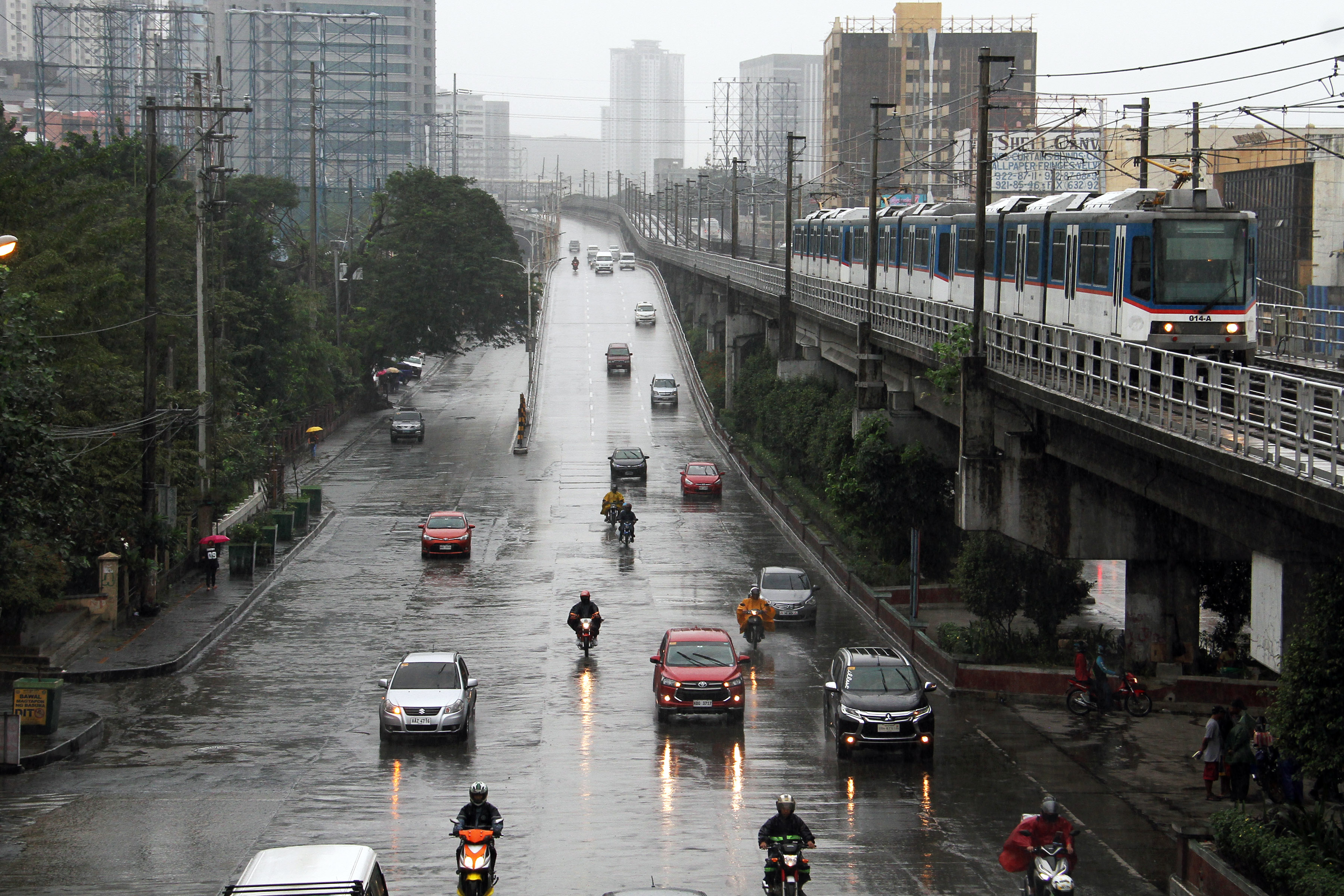News
Updated road users’ tax ‘doubly progressive’: solon

FILE: Traffic is light along EDSA-Kamuning on a rainy Tuesday afternoon (December 3, 2019). (PNA photo by Joey O. Razon)
MANILA – A lawmaker on Thursday said the measure that would impose a hike on the motor vehicle user’s charge (MVUC) is seen to be the “most progressive transport policy in recent history” if enacted into law.
In a statement, Albay Rep. Joey Salceda said House Bill No. 6136 is doubly progressive, as it guarantees that the rich would primarily pay the road users’ tax, which in turn, would significantly expand funding for the government’s Public Utility Vehicle Modernization Program (PUVMP).
The bill has already been approved on second reading at the House of Representatives.
“The cross-party consensus of the House, including the progressive groups and the minority, to move the bill forward validates the exhaustive efforts we have done to ensure that this is the most progressive transport tax in recent history,” Salceda said.
“The Committee, thanks to the support of inclusive transport advocates, and the broad coalition of supporters from the transport sector may have pioneered something rarely if at all, seen in national policy: a law that is doubly progressive. Progressive on the tax side, and progressive on the spending side,” he added.
Under the bill, the new rate adjustments are as follows: for private and government vehicles, there shall be a 30 percent annual rate increase for passenger cars for three years; rates for all utility vehicles, sport utility vehicles, buses, trucks, and trailers are based on per kilogram (kg) of gross vehicle weight (GVW): 1.40/kg of GVW for first year, 2.50/kg of GVW for second year, 3.
40/kg of GVW for third year.
A lower rate is charged for vehicles for hire, which is pegged at 50 percent of the motor vehicle road user’s tax (MVRUT) rate for private and government vehicles.
Salceda argued that 55.6 percent of all cars are owned by the top 10 percent of the population, while only 1.7 percent is owned by the bottom 30 percent.
“This makes this tax extremely progressive. Let’s make the primary road users pay for road use,” Salceda said.
He noted that 50 percent of incremental revenues would be used to finance the modernization of public utility vehicles and government programs to be undertaken for the prevention of death due to road accidents and accident victims’ assistance.
“Siguradong hindi na PHP50,000 lang ang matatanggap na subsidy ng mga jeepney driver para mag-modernize. Alam naman natin na napakaliit noon. Sa ilalim ng MVRUT, baka dumoble, triple, o higit pa ang matanggap ng mga jeepney operator, depende sa kikitain ng buwis (Definitely, jeepney drivers would receive subsidy higher than PHP50,000 for modernization. We all know that is not enough. Under the MVRUT, the amount received by jeepney operators could be double, triple, or much more than what is currently being provided, depending on the actual tax revenues),” Salceda added.
Meanwhile, the remaining 50 percent would be used for road safety under the “Build, Build, Build” program.
“Ito pong tax na ito, napaka-progressive. Mayaman ang magbabayad. Mahirap ang makikinabang (This tax is totally progressive. The rich would pay. The poor would benefit),” he said.
“And we expect it to help ease transport conditions for everyone by contributing to safer road infrastructure, and by expanding the PUV modernization,” he added.





















